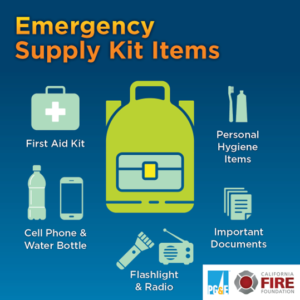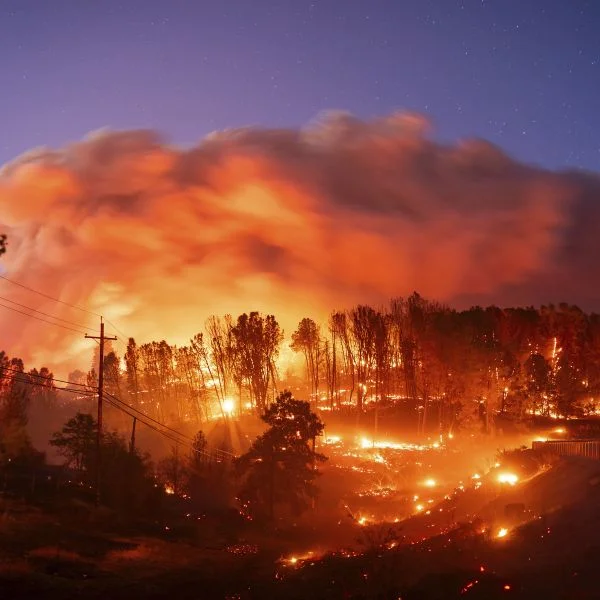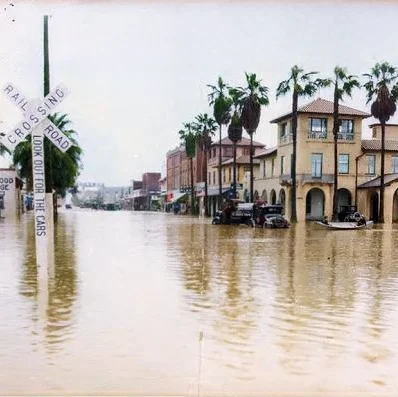The Road to Recovery Begins with Preparation
- Create and maintain a defensible space around your property
- Know your Evacuation zone and the best exit routes in case of an emergency
- Monitor air quality and have personal protective equipment available
- Know when and how to care for and evacuate pets and livestock.
- Sandbag locations and use
- Elevation maps of flood-prone zones
- Vehicle safety during high water
- Post-flood contamination cleanup guidance
- Know and practice Drop, Cover, Hold protocols
- Secure heavy furniture and appliances
- Earthquake kits
- Retrofit and insurance resources
- Thunderstorm vs. tornado alerts
- Shelter-in-place instructions
- Communicating with family during service outages
- Tree trimming and home fortification tips
- Health risks and warning signs of heat stroke
- Cooling center locations in Tehama County
- Tips for hydration, ventilation, and safe clothing
- Backup power options
- Refrigerator/freezer safety during outages
- Medical devices and electricity-dependent care
- PG&E outage tracker integration
- Create-a-kit interactive planner
- Emergency contacts form builder
- Evacuation plan worksheet
- Family communication strategy templates
- Subscribe to Tehama Alert
- Volunteer signup for disaster response teams
- Donation portal for emergency services
- Social media integration for live updates
- The best way to deal with recovery is being prepared
- Having insurance and health information is very important at this time
- Being mentally and emotionally prepared is as important as being physically prepared
Online Resources
Disaster Readiness Guides
Readiness Resource
Mental and Emotional Preparation
A disaster of any kind can be the most traumatic experience that most people will ever encounter. It can happen without warning and with great speed. No matter how well one prepares, they are never prepared to face the aftermath. Be aware and be prepared. As quickly as that disaster strikes, so will an army of volunteers and professionals appear to help provide basic needs and guide you through the process. They are there to help. This is what they do. Don’t forget your emotional needs, there will be many people there who are more than willing to just listen. Ask for help, and when you can, reach out and help others.







